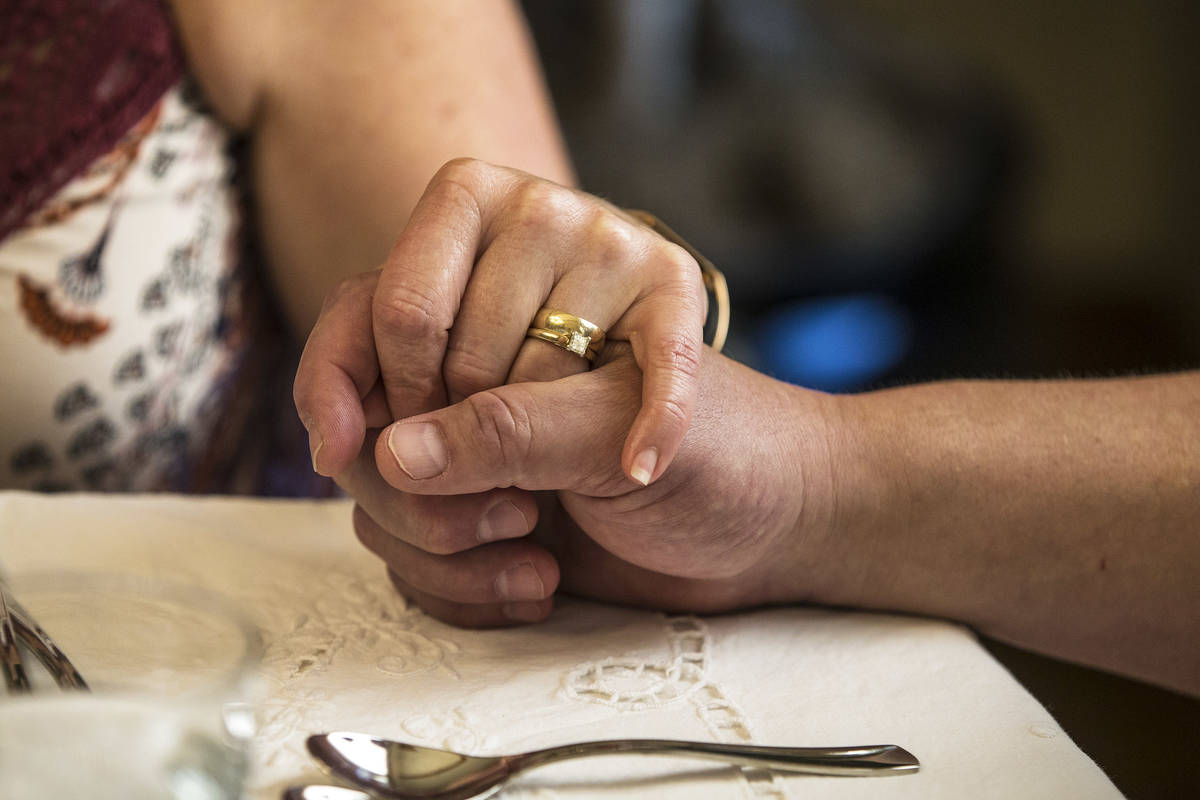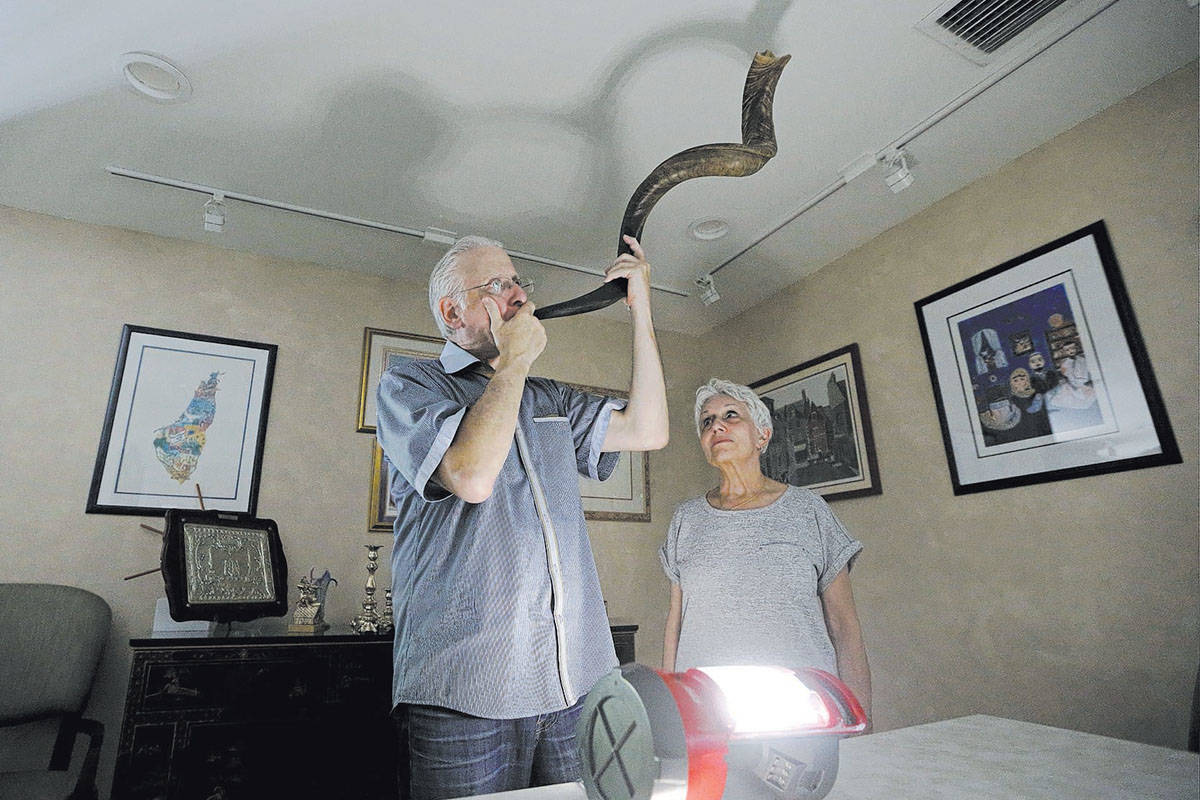COVID-19 is moving some parts of Rosh Hashana into the backyard
It’s probably inevitable in the presence of the COVID-19 pandemic, but Rosh Hashana will be celebrated a little differently this year.
Rabbi Yehuda Maryles, Southern District manager of West Coast NCSY and Las Vegas director, said because of social-distancing requirements, synagogues will be taking registration. And there will be some changes in services.
“A lot of synagogues will be doing an abridged service to have people there for a shorter period of time,” he said. And some are adding services.
“They’re actually having an early service, which means people are coming in at like 6 in the morning, and they’ll be done by 8:30,” he said. “And then they’ll be doing a cleaning and sanitizing of the synagogue and a 9 o’clock service.”
Plus, he said, members’ backyards will be utilized for the traditional blowing of the shofar, a ram’s horn.
“They don’t want to do it indoors,” Maryles said, because of the danger of droplets being spread. “Some places are actually putting a mask on the other end of the shofar, which is interesting.”
At the backyard services, he said, the reading of the Torah will be different. In the synagogue, there will be a glass partition so the person who gets called up to read the Torah is separated from the rest of the congregation.
“In the backyard gatherings,” he said, “the readings are done by the Torah reader. He takes the Torah out, he stands by the Torah, he makes all the blessings of the Torah and he puts the Torah back.”
Maryles said preregistration is being done by individual synagogues.



















